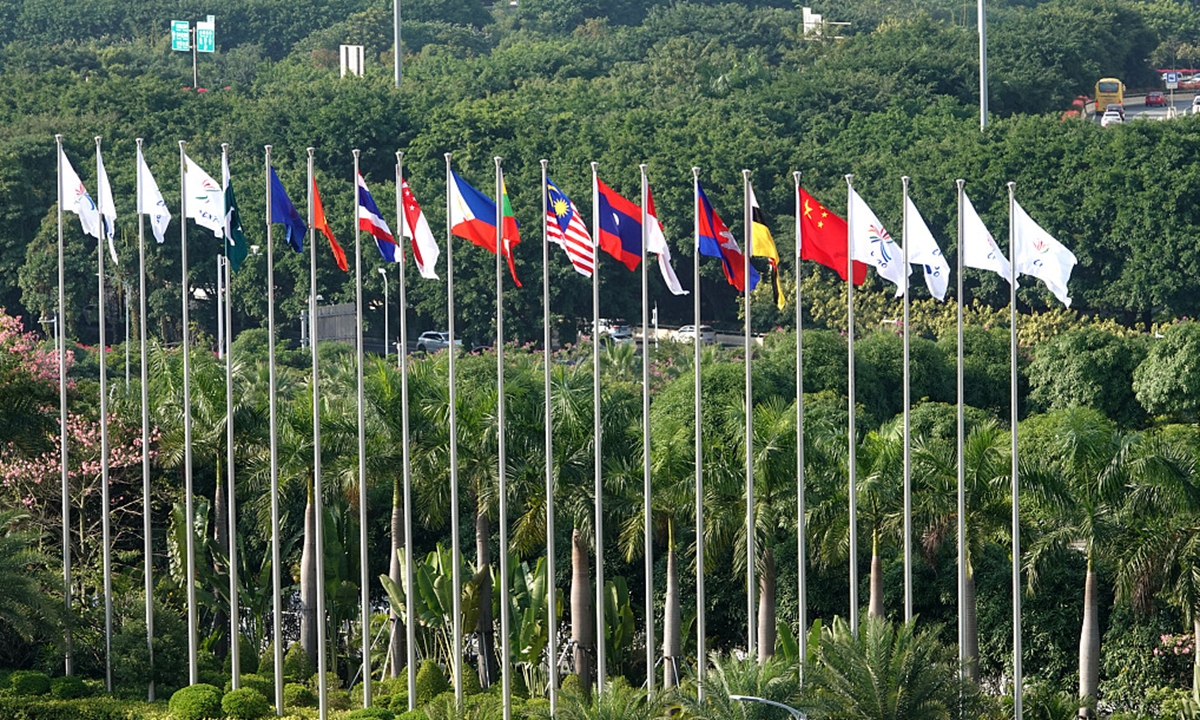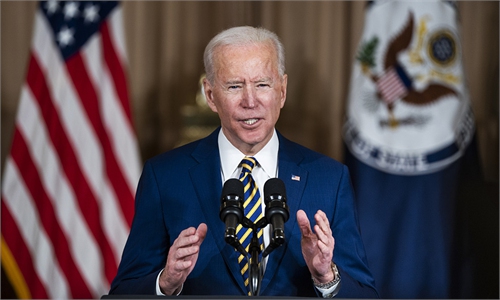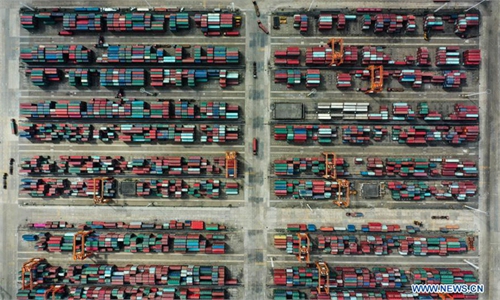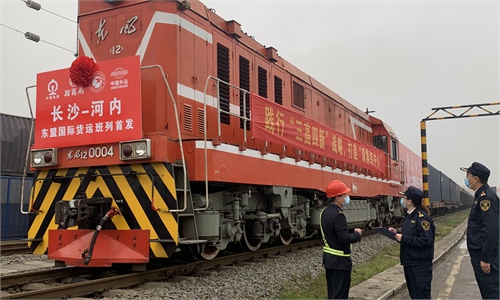ASEAN FMs’ China visit expected to help overcome regional challenges, external pressure

China-ASEAN Photo:VCG
China and ASEAN are going to overcome challenges like COVID-19 and seek solutions for regional problems like the Myanmar unrest together, as four key members of ASEAN - Indonesia, Malaysia, Singapore and the Philippines - have sent their foreign ministers to jointly visit Beijing from Wednesday to Friday.Following the trip made by Chinese State Councilor and Foreign Minister Wang Yi to the Middle East, China has been conducting diplomacy in recent days, and after the three-day visit made by the four foreign ministers of ASEAN key member states, China will receive South Korean Foreign Minister Chung Eui-yong from Friday to Saturday.
Some observers said China's frequent diplomatic activities have become a countermeasure to US pressure in the region against China, but Chinese analysts said Chinese diplomacy is not driven by any third party, and the dialogue and cooperation between China and its partners are based on their demand.
China's diplomatic style is different from that of the US. The US frequently uses regional conflicts or disputes to create problems and instability, so it could legitimize its presence in the regions and even military intervention and arms sales, said Li Haidong, a professor at the Institute of International Relations of the China Foreign Affairs University.
Chinese Foreign Ministry spokesperson Hua Chunying said on Tuesday, "At the invitation of the Chinese foreign minister, Singaporean Foreign Minister Vivian Balakrishnan, Malaysian Foreign Minister Hishammuddin bin Tun Hussein, Indonesian Foreign Minister Retno L. P. Marsudi and Philippine Foreign Minister Teodoro Locsin will visit China from March 31 to April 2."
"This year marks the 30th anniversary of the dialogue relations between China and ASEAN, and our friendly exchanges will move toward greater maturity," Hua said at a routine press conference on Tuesday.
Xu Liping, director of the Center for Southeast Asian Studies at the Chinese Academy of Social Sciences, told the Global Times on Wednesday that "these four countries have significant influence in ASEAN. They are the brains, the guardians and key promoters for cooperation in the bloc. So they will discuss strategic level issues including how to upgrade China-ASEAN ties after the 30th anniversary, COVID-19 vaccines, regional economic recovery and reopening."
Since COVID-19 broke out last year, China and Southeast Asian countries have maintained close high-level communication in a flexible way, witnessing positive progress in anti-epidemic and development cooperation, Hua said.
Chinese analysts said the vaccine is the key for regional economic recovery and reopening, but the chance for ASEAN countries and other developing countries to get vaccine from the West is extremely limited, so China is becoming the most reliable and trustworthy provider of the vaccine to these countries. ASEAN members including the four countries, as well as other members like Thailand and Cambodia, have received China's vaccines.
Due to the tense situation in Myanmar, based on the noninterference principle held by the ASEAN and China, they will also coordinate with China on the Myanmar unrest and seek solutions together, Xu said.
The Myanmar situation is getting more and more dangerous, which provides more excuses for the West to launch interventions, so the difficulty for China and ASEAN to maintain regional stability and noninterference principle has increased, experts said.
"Through this visit, China hopes to step up communication with ASEAN countries on the regional and international situation, implement important consensus of the leaders, strengthen strategic mutual trust, deepen anti-epidemic and development cooperation, boost quality BRI (Belt and Road Initiative) cooperation, scale new heights in bilateral relations and China-ASEAN relations, and better safeguard regional peace, stability and development," Hua said.
Apart from regional hot spot issues, China and the four countries will also focus on issues including the Code of Conduct of the South China Sea, to continually promote the high-quality cooperation of the BRI and to restart some projects which were suspended due to the COVID-19 pandemic, Xu said.
Western countries led by the US have launched sanctions based on disinformation about "human rights violations" in Xinjiang, and the visit of the four foreign ministers, including the foreign minister of Indonesia, a Muslim country with a huge population, will also prove that not only the Middle East countries like Iran and Saudi Arabia support China's stance on Xinjiang, but ASEAN countries also hold friendly and fair stance toward China on the matter, analysts said.
"China and ASEAN members normally won't comment on each other's internal affairs. If the ASEAN partners want to learn about the truth on Xinjiang, China will provide the information in a transparent manner. But this is based on mutual respect, rather than disinformation or groundless accusations," Xu said.
Li said China and ASEAN are developing their ties based on mutual respect and are trying to make the region more united and development-focused. This is a much more modernized and civilized diplomatic philosophy, while US diplomacy is based on "finding common threats and using alliances to pressure and contain others and create new common threats," which is dangerous.




